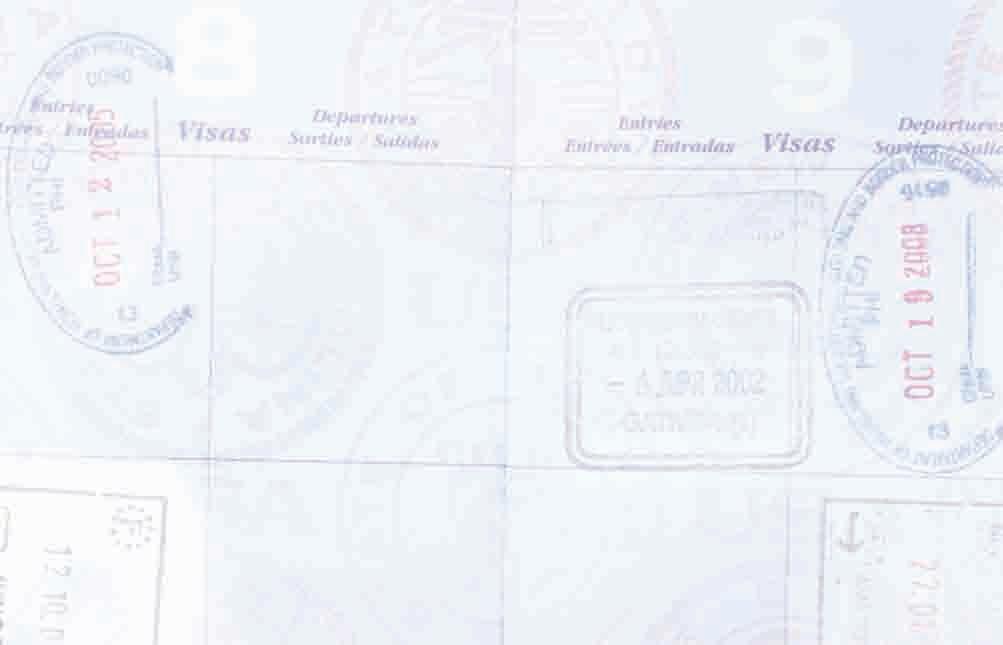
9 minute read
Foodfinds
from Feb. 16, 2012
Flyaway
Tips to traveling with little ones
Advertisement
Before your little bundle of joy arrived, you and your partner were thrill-seeking adventurers, like all couples are before they become parents … right? The ease of picking up and going without having to pack three bags of supplies or worry about sleeping and feeding schedules is something that many people take for granted before starting a family, but an adventurous life doesn’t have to end once children are in the picture.
Traveling with a baby or young child takes some planning, but it’s not impossible. Kids are tough creatures and quick to adapt to new circumstances.
“Travel is education,” writes Michelle Duffy, author of WanderMom.com. “It’s as simple as that. I can travel with my children without leaving my home, using books and the internet to show them people and places around the world. But when I can, I prefer to actually travel with them, to explore and discover the world together.”
While pediatricians recommend that infants shouldn’t fly on a plane until they are at least several weeks old, there’s no reason that a healthy baby can’t come along for a trip. Many parents prefer to wait until their children are older so they will remember their experiences, but travel is a chance to broaden their minds while they are young.
“What if we allowed the idea, ‘Will they remember it?’ to govern all our decisions on what to expose them to?” says David Robert Hogg, who documents his travels with his wife and two young sons at MyLittleNomads.com. “It’s hard to think of anything really interesting you’d do with them. But of course, it’s not just about them remembering it. It’s about their growth and development—what they take as normal and what they see as weird.”
So go ahead and book that trip to Nepal. Just don’t forget to pack some extra diapers.
KEEP PASSPORTS CURRENT
Traveling with kids means that airport security closely scrutinizes parents to make sure that people aren’t smuggling another person’s child into other countries—an unnerving thought, but it happens— and some countries require that children’s passports are not only current for the duration of the trip but also several months after. For kids under 15 years old, a passport lasts for five years, so if you get one for your toddler, it’s a good practice to update their photo as they age.
PACK COPIES OF IMPORTANT DOCUMENTS
Travelers should do this anyway, but it’s important to have copies of necessary documents such as Social Security cards, birth certificates, medical prescriptions or doctor’s notes and bank cards. However, this is data on your family and finances that should be kept extremely safe, so keep it on your person or in a bag that never leaves your side.
GET YOUR SHOTS
The chances of contracting some foreign disease in the rain forests of Brazil or the savannas of Africa are actually pretty low if you take preventative measures to get vaccinated ahead of time. Certain shots are required for kids at different ages, so check with your doctor several months before you plan to depart.
by Ashley Hennefer ashleyh@newsreview.com
FIND A RELIABLE BABY CARRIER
If you’re heading to a destination with a plan to hike up a mountain or ride an elephant—or even just wander around the Louvre for a few days—a baby carrier is essential. Traveling parents have given favorable reviews to carriers like the BabyBjorn, which situates the child facing outward and leaves the parent’s hands free. Be nice and share carrying duties with your partner.
BOOK A NONSTOP FLIGHT
Not only will a nonstop flight ensure that your child can take a nap, but having to transfer planes at another busy airport with your child and belongings in tow is an unnecessary hassle. Set a watch to the time back home to measure when your child normally sleeps and eats and when possible, book a flight during a time where they can sleep through the night.
BRING BOOKS AND GAMES
You’ll have your hands full already with a diaper bag and a regular assortment of luggage, but a few books and games can distract a toddler on a long flight or car ride. Find picture books about the place to which you’re traveling, and a game kit with a container or magnetic pieces will ensure parts don’t get lost during turbulence.
RESEARCH HOTELS
If you plan on bringing a stroller, check hotels ahead of time to determine the layout of the hotel. Many hotels in Europe or Asia, for example, don’t have elevators, so lugging a stroller up a tiny staircase might be an unnecessary stress. Hotels also may have strollers available to rent or borrow. You should also ask about bathrooms and if changing stations are available. When possible, find a hotel with a bathroom in the room, but if you plan to stay in hostels, you may be sharing a shower area with other travelers.
RESEARCH HOSPITALS
Research is vital for any traveler, and with kids in tow, it’s imperative to know where a hospital is located and what the health system is like in that country. It helps to bring a bag of medications for emergencies if you plan to really go off the grid. Doctors can write prescriptions for antibiotics or specific medications like asthma inhalers and allergy tablets to keep on hand if a hospital is hard to find or if there is a language barrier.
GET BUSY ON YOUR FIRST DAY
While it’s tempting to take a long nap after arriving at your destination, keeping yourself and your kids awake and busy will help reduce jetlag so you can all fall asleep at night. Keeping them on a schedule close to the one at home will make them energetic when it’s time to explore and tired when it’s time for mom and dad to sleep.
TAKE PICTURES OF INTERACTIONS, NOT JUST THE TOURISTY STUFF
Taking pictures is a must, but documenting your child buying fruit from a vendor may become a better memory than a photo of them standing in front of the tower of Pisa. “You’ll look at the photo of your kids walking down the beach together or the one where they’re walking through a little village in Cambodia and you’ll wish you could jump right back into the picture,” Hogg writes.
RELAX
We Americans are spoiled by our immense safety regulations. Things like seatbelts and car seats are necessary here in the states, but it’s easy to forget that not every country has them. When possible, stay as safe as possible—and don’t be afraid to speak up if you’re uncertain about transportation options or questionable circumstances—but be reasonable about your fears.
“It’s not always easy to know where to draw the line. Youare traveling in a foreign country where the idea is to adopt that country’s norms and standards,” writes Hogg.
While it’s better to be safe than sorry when traveling abroad, the odds are, you and your family will remain safe. Prepare to be unprepared, and let your children have adventures. Ω
Get your game on

Video games may be good for your teen
It seems video games and parents havegotten
by Ashley Hennefer ashleyh@ newsreview.com
off on the wrong foot. Somehow, games have gotten a bad reputation, much worse than that of books, television or film. Games are often thought ofas addictive, isolating, violent and a waste of time, and are frequently blamedas a reason for unstable behavior.
But now that the National Endowment of the Arts has finally acknowledged video games as a legitimate art form, families are starting to notice what gamers have been saying for years—games are a cool, innovative source of entertainment and cognitive development.
And games are better than ever. Graphics improve with each new installment of a series, and intricate, unique storytelling devices require players to be actively immersed in a plot, taking on the role of both “writer” and “reader,” as game studies researcher James Alberti argues. Games differ from literature, film and television because the players must make choices and think critically about why they are making those choices, because the consequences are immediate. They also must acutely observe the setting, dialogue and characters.
There’s a lot happening in teenagers’ heads when they focus intently on sniping a terrorist or forming a guild of dwarves. Most games require strategy and problem solving skills, and playing on a console is often suggested by pediatricians to help kids improve their hand and eye coordination. Computer gaming has also been used successfully as a type of treatment for children with ADD, ADHD and autism because they allow kids to wander through worlds, make decisions on their own, and revisit levels and puzzles that are complex— all while sitting quiet and focused.
Jane McGonigal, game designer and author of Reality is Broken: Why Games Make Us Better and How They Can Change the World, argues that teenagers tend to get “addicted” to games because they are somehow dissatisfied with their reality and seek refuge in a virtual world, looking for tools that they can then apply back to their own lives.
“Games are showing us exactly what we want out of life: more satisfying work, better hope of success, stronger social connectivity, and the chance to be a part of something bigger than ourselves,” she writes. Characters in games represent qualities that teens want— physical strength, a unique identity, and interesting world to explore independently and a set of clear obstacles to overcome. They have the chance to experiment with a personality before adopting the traits they admire in others as their own.
If your teen is old enough to watch shows on cable television, they’re probably not going to be so influenced from a round of Call of Duty that they’ll feel compelled to shoot at the neighbors with an airsoft gun. Games can be gritty and raunchy, but they can paint an honest portrait of war and struggle and support the idea of collaboration.
McGonigal suggests limited your child’s game time to less than 21 hours a week, and encourages parents to get in on the action. Playing with them ensures that you know what kind of media they’re consuming, and you’ll get some bonus points from them for engaging in an activity on their level. The Xbox Kinect, PlayStation Move or Nintendo Wii all offer family games that will also give you a good workout. And you never know—you may find yourself signing up for a World of Warcraft account before you can say “paladin.” Ω












